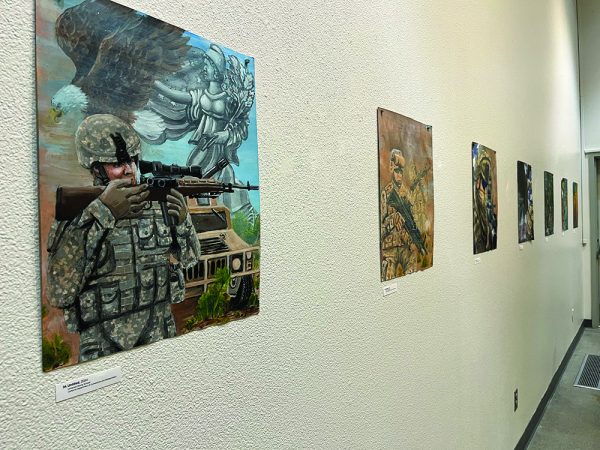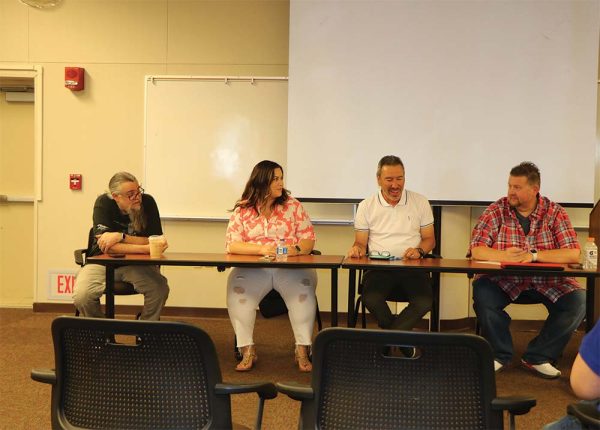Bakersfield College invites author Miroslava Chavez-Garcia to celebrate Hispanic Heritage Month
September 19, 2020
Bakersfield College celebrated Hispanic Heritage month with, author and professor for UC Santa Barbara, Miroslava Chavez- Garcia. The discussion included letters and commentary from Garcia’s book, “Migrant Longing: Letter Writing Across the U.S.-Mexico Borderlands,” which went through the journey of Jose Chavez Esparza and Conchita Alvarado.
The speaker was presented through a virtual zoom call by BC professor, Reggie Williams, on Sep. 16. Garcia described this event as “a slice in the life of my family’s history.”
The discussion opened with an introduction of Jose. Esparza was raised in Calvillo, Aguas, and moved to Imperial Valley in the 1950s where he found work in the Bracero Program. In December 1962, he went to visit his family for the holidays, and that is where he met Alvarado, Garcia’s mother. He immediately developed feelings for Conchita although there was not much talking between them.
When Esparza was back in Imperial Valley, he wrote a letter to Alvarado confessing his admiration for her.
“30 years old and longing for a female companion, Jose quickly initiated a bold letter-writing campaign to win her heart and hand in marriage. He forced himself to wait a few days before crafting the letter, but as he confessed, he ‘could not delay any longer as he had returned enchanted with her personality and all of her ways,’” Garcia read.
Jose worked as a farmer and Conchita was a student. They were 13 years apart in age difference with Esparza being 30 years old and Alvarado being 18 years old. Throughout their three-year courtship, Esparza wrote 45 letters and Alvarado responded with 35.
Jose was always the one to be more vocal about his love for Conchita. He expressed his admiration for her every time he sent a letter. Alvarado’s love was different than the love that Esparza would express.
“I am writing to you to tell you that I have not forgotten you, and I wish that you too would think of me. If you only know how much I’d wish you grow to love me that is what I long for most,” Esparza wrote.
“Look, I love you. Well, let’s see if you understand. I wish I could reciprocate your feeling, but as you know you cannot obligate the heart,” Alvarado responded.
A couple of years after this letter was sent, Alvarado agreed to a marriage with Esparza. Although she was not in love with him, she felt the marriage was best for the family.
Garcia wrote the book to give an interpretation of her family’s letters and show the lives of migrants. This chapter was written to describe the journey between her parents, Jose Chavez-Esparza, and Conchita Alvarado. She never got to know her parents as an adult, since they died in an accident when she was 12, but the letters gave insight into who her parents were.
“This I felt was an actual family history… it brought together all the stuff about my family that I have been teaching. It was really a great way to tell my family’s history but make it relevant to lots of people,” Garcia said.









